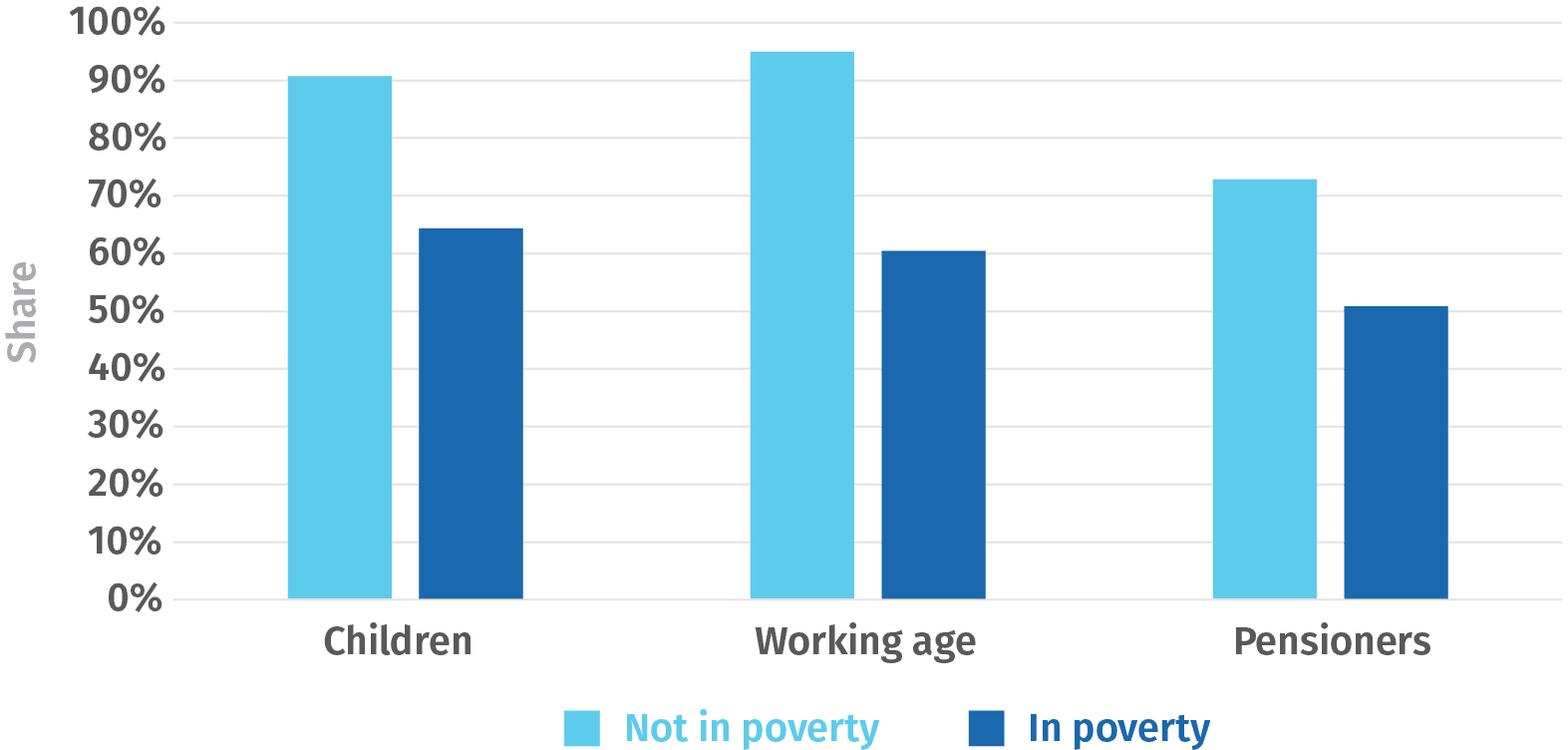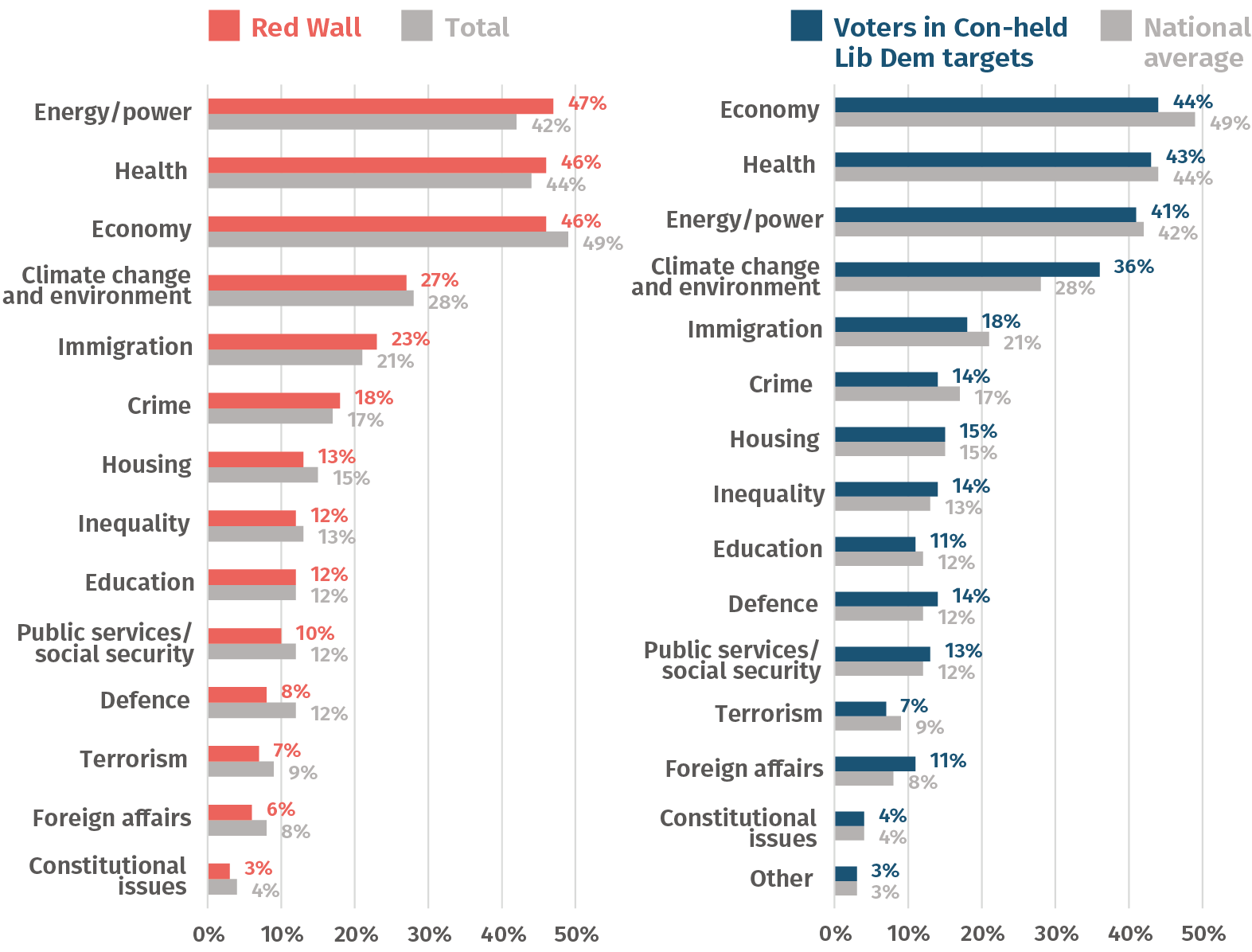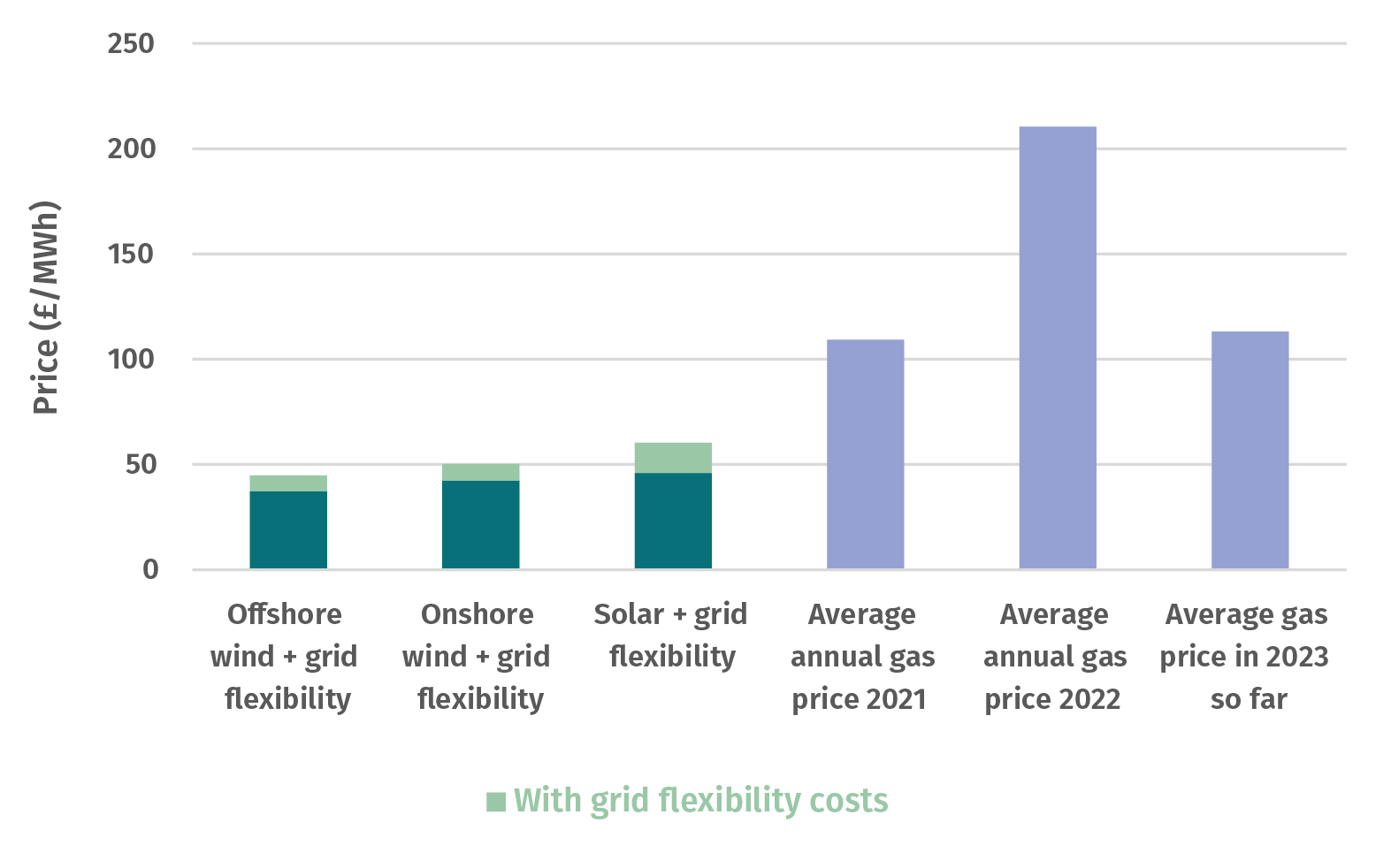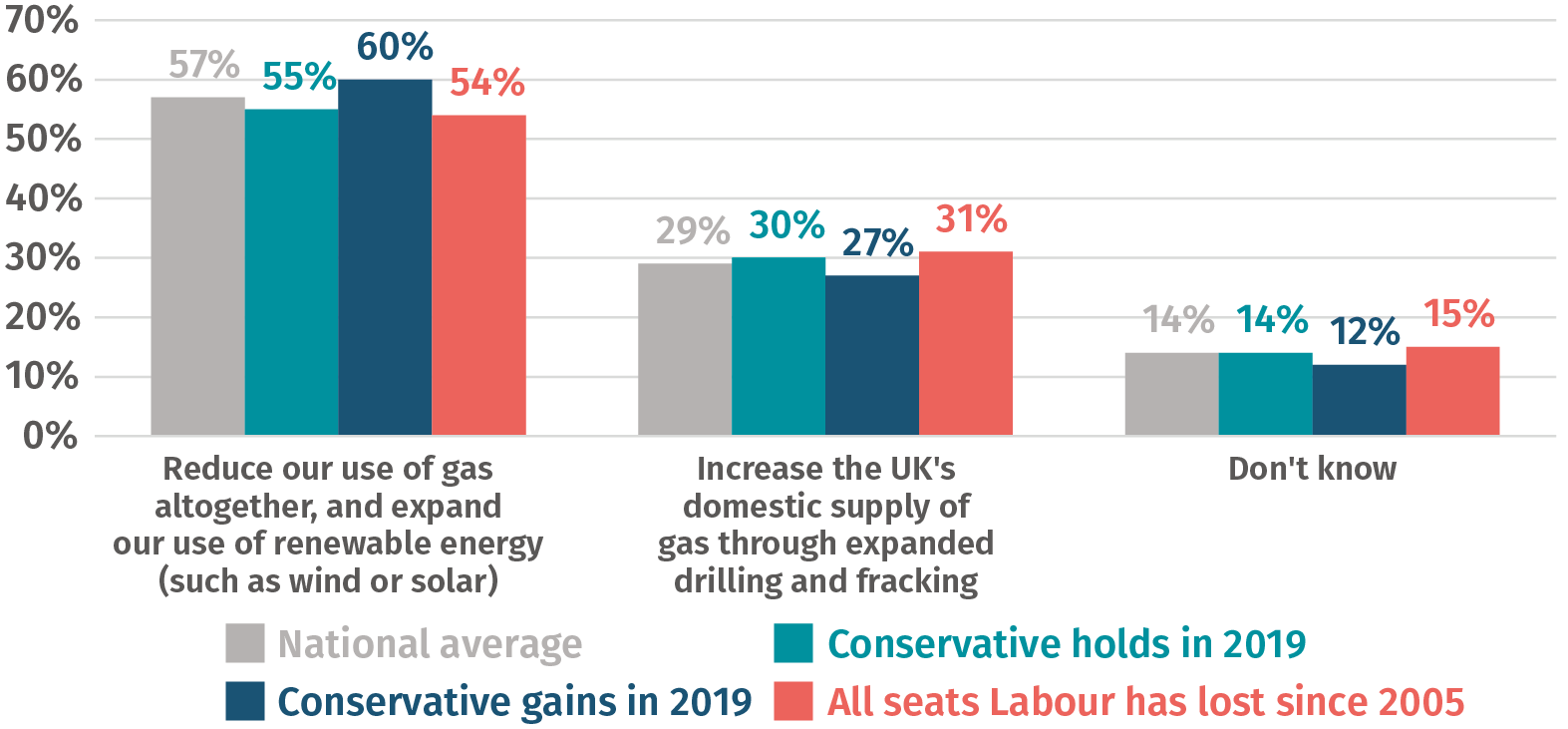As some politicians seek to divide on climate change, the public remain united
Article
As Conservative leadership campaigns draw dividing lines, including on net zero, and other parties develop their policy responses to the cost-of-living crisis, this blog assesses where the public are on climate change. This is the first in a series of blogs and reports from IPPR’s new Fair Transition Unit looking at public opinion, communication, and framing on climate change and nature.
Facing soaring inflation, a cost-of-living crisis, war in Ukraine, do the public still care about addressing climate change?
That is a question some politicians are asking themselves. Though some of those running for the leadership of the Conservative party have already answered it, deciding either that the public don’t care, or perhaps that they don’t care about the answer, because they think an anti-net zero position might be popular with the Tory membership. Launching her campaign, Suella Braverman said: “we need to suspend the all-consuming desire to achieve net zero by 2050”, while Kemi Badenoch has said that the “arbitrary” net zero target is ill-thought through.
Both Jeremy Hunt and Sajid Javid backed the net zero target on the Sunday shows in their bids for the leadership. Though others, including the former chancellor Rishi Sunak, have regularly been accused of being lukewarm on green policies.
Such divisions may not be unique to the Conservative party - though they’ll be more prominent due to the leadership campaign. For instance, some Labour politicians may well be pondering the wisdom of their party’s £28 billion green investment pledge.
So, what do the public think?
Back away from net zero, back away from the public
The UK has some of the highest levels of concern regarding the climate emergency in the world with 81 per cent of people ‘believing’ in the climate emergency, with over three-quarters (77 per cent) saying we must do ‘everything necessary, urgently as a response’.
Polling consistently shows that the proportion of people concerned about climate change is high and that concern is increasing across all demographics. Over 95 per cent of voters supported parties committed to net zero at the general election in December 2019, as many are pointing out to the Tory leadership contenders.
Unsurprisingly, concern about climate change has dropped in salience due to increasing concerns about the cost of living and the Russian invasion of Ukraine. Yet since 2020, the environment has featured in the top three issues facing the country in 47 per cent of YouGov polls, and in the top four in 89 per cent. Underlining how important an issue the UK public consistently believe it to be.
“Importantly, since 2020, the environment has featured in the top three issues facing the country in 47 per cent of YouGov polls, and in the top four in 89 per cent.”
There is no ‘culture war’ on climate
Perhaps equally as important is that the public see climate change as a concern for “everybody”; there is very little agreement with the suggestion that it is only the concern of rich, white, middle class or left-wing people and overwhelming support for the idea that climate change is a concern for us all regardless of income, background, or politics.
“The public see climate change as a concern for “everybody”… [there is] overwhelming support for the idea that climate change is a concern for us all regardless of income, background, or politics.”
The issue also bridges across the party divide of the two main parties in Westminster – both Labour party and Conservative party supporters are concerned about climate and the environment. Unlike in the US, views on climate change in the UK are not politically polarised. In the UK, the relationship between political orientation and climate change views is not about partisanship but is related to people’s wider values.
“Both Labour party and Conservative party supporters are concerned about climate and the environment.”
Figure 1: Both Labour party and Conservative party supporters are concerned about climate and the environment
Support for each statement by party political affiliation (climate change)

Source: IPPR Analysis of NatCen 2020, British Social Attitudes Survey 2019, dataset. Accessible via the UK Data Service.
Analysis also shows that climate change is a concern for key seats and voter demographics. Climate change and the environment is the fourth most important issue for voters in the so called ‘red wall’ and in Conservative-held Liberal Democrat target constituencies. Voters in the latter are also more likely to prioritise climate change as an issue compared with voters nationally.
Figure 2: Climate change is a key priority for ‘red wall’ voters and voters in Conservative-held Liberal Democrat target seats
Top 3 issues facing the country for ‘red wall’ voters (left) and for voters in Conservative-held Liberal Democrat target seats (right)

Source: Opinium UK polling undertaken for the European Climate Foundation, 30 May – 1 June 2022, 3000 UK adults, unpublished dataset and 5–9 May 2022, 2000 UK adults, unpublished dataset. Analysis by Steve Akehurst.
Importantly, the evidence shows that this extends beyond concern and translates into significant majority support for the UK’s net zero target. For example, 63 per cent of ‘red wall’ voters support the government’s net zero target (see figure 3).
“63 per cent of ‘red wall’ voters support the government’s net zero target.”
Figure 3: 63 per cent of ‘red’ wall voters support the government’s net zero target
Top 3 issues facing the country for ‘red wall’ voters (left) and for voters in Conservative-held Liberal Democrat target seats (right)

Source: Opinium UK polling undertaken for the European Climate Foundation, 17–19 January 2022, 2033 UK adults, demographic and political weighting, unpublished dataset. Analysis by Steve Akehurst.
Support for policies and delivering climate action
Opponents of net zero may argue that concern about climate change and support for the net zero 2050 target in theory do not mean support for green policies in practice. Yet while support is more mixed for specific policies, in general, green policies receive strong support.
For example, Onward have constructed a Net Zero Index, which shows net support for every policy tested. Indeed, most people would like to see more climate action from the political party they voted for in 2019. The YouGov tracker on how ‘government is handling the issue of the environment in the UK’ shows that 53 per cent of voters think the government is handling the issue badly, compared to 32 per cent who think they’re handling it well.
Certain policies are more divisive than others, including replacing gas boilers, banning the sale of new petrol and diesel cars by 2030, and changing farming practices and rural landscapes to cut emissions. However, these all still enjoy majority support.
Even more important is that clean energy – a net zero policy – is seen by all voter groups as the best means of reducing UK reliance on Russian gas and achieving energy security (figure 4). Those hoping that the war in Ukraine would lead to a backlash against green policies should be sorely disappointed because the public instead view them as part of the solution.
Figure 4: Clean energy is seen as the best means to reduce UK reliance on Russian gas by a majority across all voter groups
Views across UK voters and key voter groups on ‘the best way of eliminating UK dependence on Russian gas’

Source: Opinium UK polling undertaken for the European Climate Foundation, 1–3 March 2022, 2000 UK adults, results weighted to be nationally representative, unpublished dataset. Analysis by Steve Akehurst.
Anti-net zero? You’re on the wrong side of the politics (and the economics)
Of course, despite the high public concern and broad support for action, there remains no room for complacency among those wanting to sustain and deepen public support for action on climate change and nature restoration. While there is currently no evidence of a culture war on climate change, advocates for climate action must work to ensure that remains the case. Climate delayers and deniers are working hard to undermine the case for climate action by weaponising genuine concerns, promoting misinformation, and misrepresenting public opinion. These efforts must be countered at every step and in the coming weeks we will be publishing a paper and a further blog on how best to communicate with the public on climate and sustain support for action.
Yet what the evidence overwhelmingly shows is that public concern about climate change is high, support for net zero is strong, and there is broad backing for many of the policies needed to deliver. Far from the war in Ukraine and the cost-of-living crisis undermining the case for climate action among the public, the evidence suggests that the public rightly view net zero policies as the answer.
“Some politicians prosper despite being on the wrong side of the politics of an issue. Some prosper despite being on the wrong side of the economics. Few prosper being on the wrong side of both.”
It's possible that those politicians running on an anti-net zero ticket may feel that, despite the overwhelming public support for climate action, the public will come their way because the cost-of-living crisis will concentrate minds and green policies will be viewed as unaffordable. The trouble with this argument is that it is net zero policies which are best placed to lower costs for consumers such as lowering our bills for heating.
Some politicians prosper despite being on the wrong side of the politics of an issue. Some prosper despite being on the wrong side of the economics. Few prosper being on the wrong side of both.
With thanks to Steve Akehurst and Henry Parkes for collating and sharing data for this blog.
Related items

The health mandate: The voters' verdict on government intervention
The nation’s health is now a top-tier political issue.
Reclaiming social mobility for the opportunity mission
Every prime minister since Thatcher has set their sights on social mobility. They have repeated some version of the refrain that your background should not hold you back and hard work should be rewarded by movement up the social and…
Realising the reform dividend: A toolkit to transform the NHS
Building an NHS fit for the future is a life-or-death challenge.